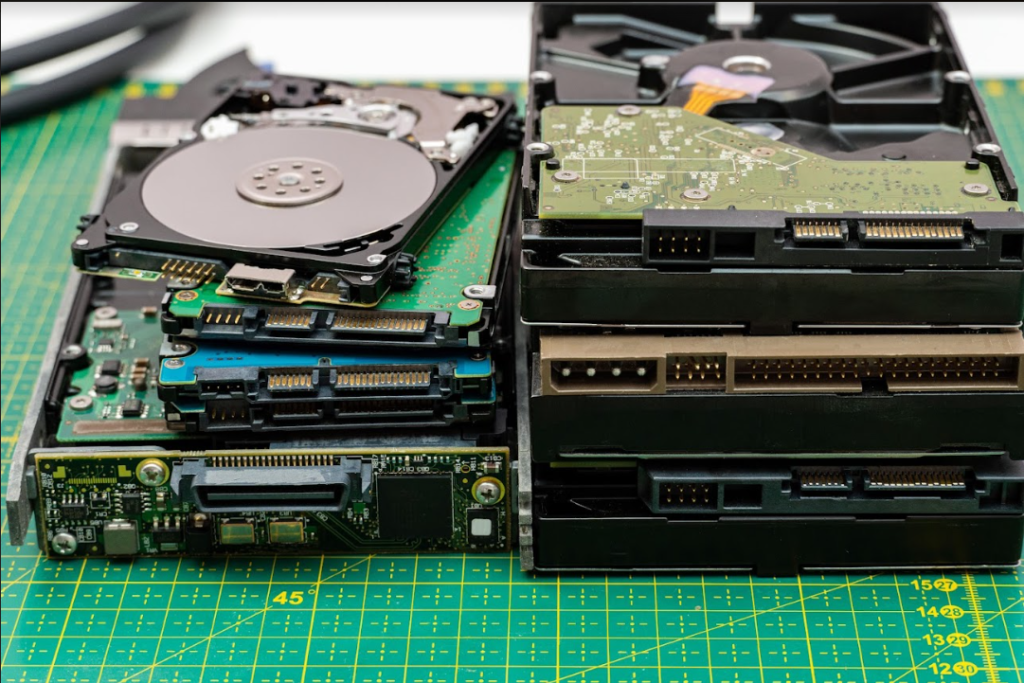Looking at the current inventions around the globe in the IT space, data centre equipment
will eventually become obsolete, and you will require new hardware to get the system up and
running. What’s the best way to manage the E-waste of outdated equipment? Numerous
companies are stockpiling end-of-life data centre hardware since they are unsure what to do
with it. Apart from the reality that this approach consumes valuable storage space that could
otherwise be employed for productive tasks, there are drawbacks to stockpiling outdated
processors, computers, disc drives, and other equipment.
You’re well aware that your company deals with numerous sensitive information being an IT
professional. Data on your old equipment mustn’t get misused, whether it’s data regarding
private internal operations or personal information involving your clients. Data Centre
recycling is the most excellent option for E-Waste Management, but there are a few things
you should be aware of.
What To Consider Before Recycling Your Old Equipment?
Your organisation must compile an inventory of equipment for dismantling before discarding
obsolete PCs, servers, and network infrastructure. Sticking to the asset checklist you submit
to your Data Destruction Service provider is the most significant way to speed up the
disposal procedure.
Apart from this, note down the following things:
Understand Your Recycling Requirements.
You can’t be sure that you are well-aware of every piece of hardware in your data centre,
and you certainly don’t know which ones need to be replaced and which ones can be useful
until new equipment arrives. You should begin by reviewing your inventory and determining
precisely what you require.
Work With Reputable Professionals.
Working with a reliable provider is the most critical decision when recycling your old data
centre equipment. You may rest assured that the procedure will run well if you work with
trusted professionals.
Disk Eradication may be Essential.
Disk eradication will be imperative if you have hardware containing customer-sensitive
details to comply with laws such as PCI and HIPAA. A summary of eradication efficiency for
each disc may be required for verification purposes.
Recycling Can Be a Cost-Effective Option.
Whenever you think of eliminating your data centre equipment, data centre recycling is the
most cost-effective alternative. There’s a chance you’ll be able to get some money back for
your old equipment, which can help cover the expense of getting new ones.
It’s Essential to Follow Environmental Guidelines.
Recycling is excellent for the environment, and organisations must follow standards when
discarding electronic assets. Environmental restrictions are more than just guidelines, and if
you don’t recycle properly, you could face serious legal consequences.
When you recycle your data centre equipment properly, you are doing a great favour for
everyone (even your company). Your company and consumers will be unaffected, and you’ll
be helping to achieve the goal of environmental protection. Further, by destroying or
disposing of the existing ones, you are creating an opportunity to leverage the new
technology to help you stay competitive in your industry.
Conclusion
The above were some key points to consider regarding data centre recycling. Recycling in
data centres is essential, and it is the responsibility of every company to handle it properly.
One of the best moves you can make today is to include a reliable Data Destruction
Service. The right company will now help you recycle electrical and data centre equipment.
The company can assist you with disposing of electronic waste, data centre equipment, and unused IT assets.


